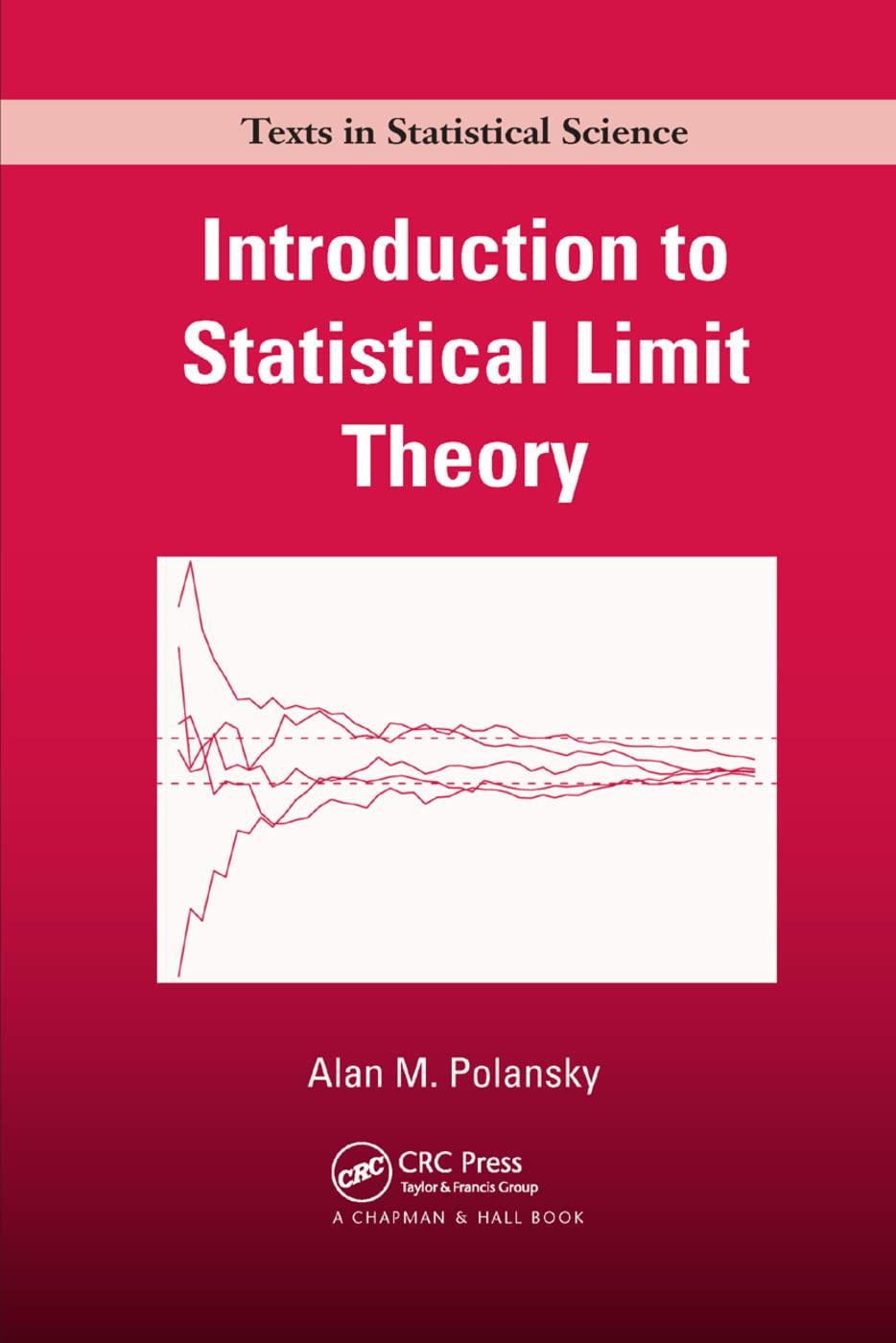Let (G in mathcal{F}) and let (F) be a fixed distribution from (mathcal{F}). Consider a functional of
Question:
Let \(G \in \mathcal{F}\) and let \(F\) be a fixed distribution from \(\mathcal{F}\). Consider a functional of the form
\[I(G)=\int_{-\infty}^{\infty} \cdots \int_{-\infty}^{\infty} t\left(x_{1}, \ldots, x_{r}ight) \prod_{k=1}^{r} d\left[G\left(x_{k}ight)-F\left(x_{k}ight)ight]\]
where there exists a function \(\tilde{t}\left(x_{1}, \ldots, x_{r} \mid Fight)\) such that
\[I(G)=\int_{-\infty}^{\infty} \cdots \int_{-\infty}^{\infty} \tilde{t}\left(x_{1}, \ldots, x_{r} \mid Fight) \prod_{k=1}^{r} d G\left(x_{k}ight)\]
for all \(G \in \mathcal{F}\) as given by Theorem 9.2. Prove that for the functions \(\tilde{t}\left(x_{1}, \ldots, x_{r} \mid Fight)\) specified in the proof of Theorem 9.2 that
\[\int_{-\infty}^{\infty} \tilde{t}\left(x_{i_{1}}, \ldots, x_{i_{r}} \mid Fight) d F\left(x_{i_{k}}ight)=0 .\]
Step by Step Answer:






